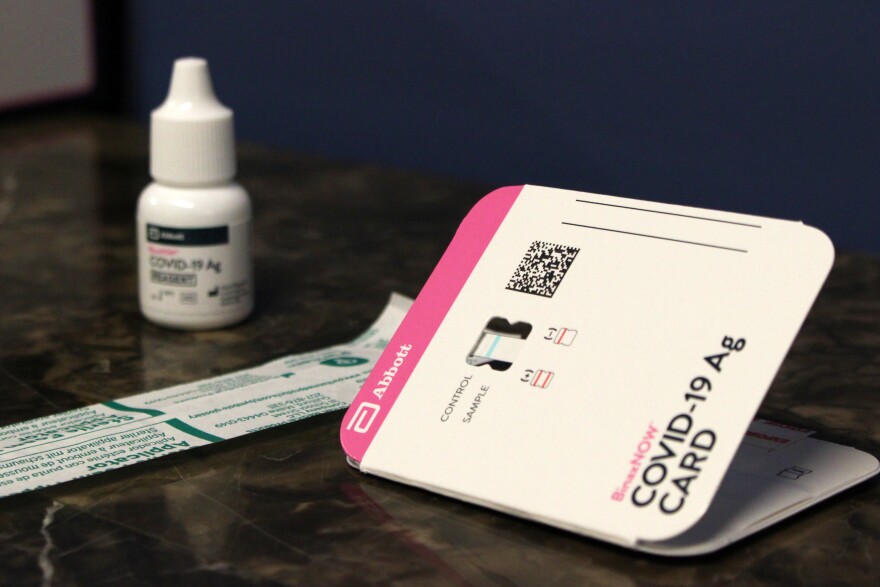The new COVID-19 booster vaccines are available in North Texas. These vaccines are bivalent, which means half of the formula protects against the original strain of COVID-19, and the other half protects against the omicron variant. Omicron variants, like BA.5, currently make up the majority of the cases in the United States.
Getting an omicron booster is a 'proactive step'
While cases and hospitalizations are down from the height of the omicron surge in early 2022, transmission and cases among kids in Dallas and Tarrant Counties are high since school started back up. Epidemiologist and author of Your Local Epidemiologist Katelyn Jetelina said this booster provides an update for people’s immune system defense in the face of an unpredictable virus.
“Coronaviruses thrive in the winter, because of humidity, because of behavior change, and we also see this with the flu,” Jetelina said. “This is one of the first proactive steps we’ve taken to try and anticipate what this virus is going to do.”
Chief Medical Officer for Parkland Health Joseph Chang said the past few years have seen surges in the fall and winter, so the availability of the vaccine now is helpful.
“After you get a vaccine, it takes about two to four weeks for all those antibodies to be built in your body,” Chang said. “Waiting until the middle of the winter, you’ve already wasted all that time. Get it now, so when the cold weather comes, your body’s ready to go.”

When and how to get an omicron booster in North Texas
Both Pfizer and Moderna have single-dose omicron booster shots available. Kids 12 and up can receive Pfizer’s booster dose, while Moderna is approved for people 18 and older. The vaccine is now available at local pharmacies, pop-up events hosted by the Texas Department of State Health Services through Sept. 25, clinics and hospitals like Parkland Health, and county public health departments.
In terms of timing, Jetelina recommends scheduling an appointment for a booster if it’s been six months or more since a person’s last vaccination against the virus.
“Get it tomorrow, get it this week, that includes me: I haven’t had it since last November,” she said.
If someone has had COVID-19 or been vaccinated in the past two to three months, it’s okay to wait for “that four to six month window, so you maximize and broaden your protection, but have protection into this winter,” Jetelina said.
Chang also said eventually, he expects they’ll be a regular vaccine against COVID-19, much like the annual flu shot.
“I don’t think anyone really believes it’s going away completely,” he said. “That was a hope at the beginning but I don’t think anyone believes that truly is going to be the case. It’s gonna be around in some form or another for a very long time.”

Omicron boosters are part of a multi-layered approach to combat the virus
Jetelina and Chang both said while boosters help decrease the severity of symptoms with COVID-19, getting one shouldn’t mean an end to masking and testing.
“We know we can’t put all of our eggs in a vaccine basket,” Jetelina said. “We need to continue to try and keep transmission down like masks indoors during surges, like leveraging antigen testing before seeing grandma, for example, and also really updating our institutional-level interventions like filtration and ventilation.”
Chang said vaccines protect people’s health, and also safeguard their time, by ensuring they’re not missing school, work, or trips with family and friends.
“When things are bad, it’s too late,” he said. “By the time that vaccine starts working, the numbers are already starting to come back down. So, you’ve actually missed all the protection. The time to get it is now. The time to get it is before things are bad.”
Jetelina said the new reality moving forward is weighing decisions like travel and new vaccines with people’s safety in mind.
“We have a very great quality of life, it doesn’t mean we all have to be locked down, but we need to use these tools smartly to have this quality of life and still protect the ones we love,” she said.
Got a tip? Email Elena Rivera at erivera@kera.org. You can follow Elena on Twitter @elenaiswriting.
KERA News is made possible through the generosity of our members. If you find this reporting valuable, consider making a tax-deductible gift today. Thank you.





